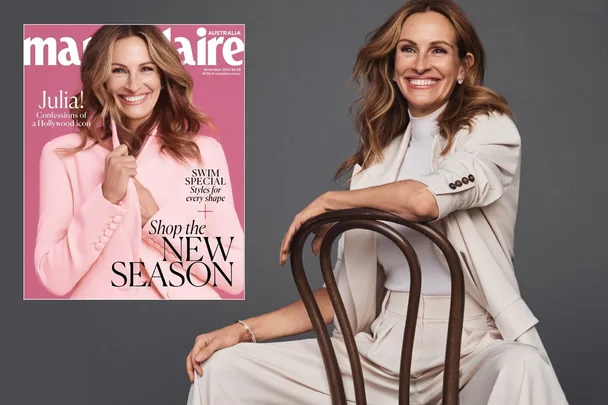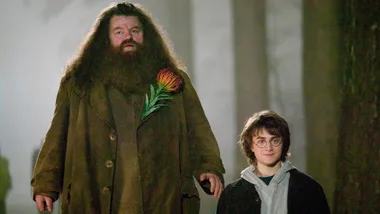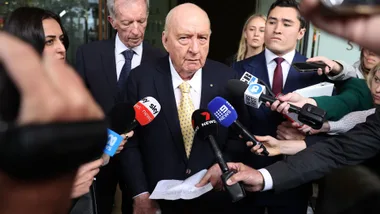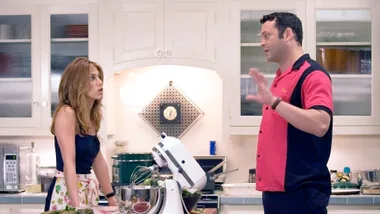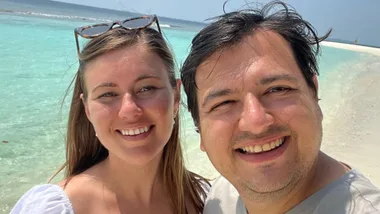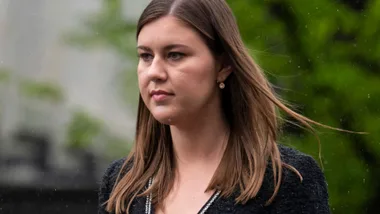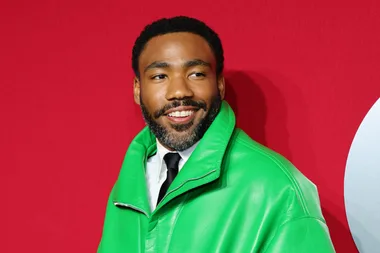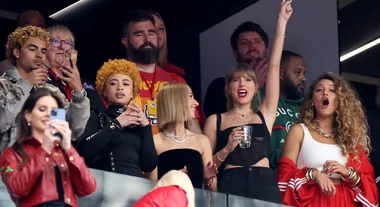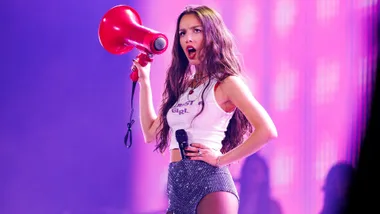Julia Roberts spent the beginning of this year locked down in Queensland.
One of Hollywood’s most famous women was in the Whitsundays filming Ticket to Paradise with George Clooney when Covid numbers spiked and the pair had to quarantine. Clooney, who had his family with him, rescued Roberts from loneliness as she became part of their bubble.
It sounds like something out of the kind of movie Roberts made her name doing in the ’90s, when she became the first female actor to make more than $US20 million a movie following hit films such as Pretty Woman (1990), My Best Friend’s Wedding (1997) and Notting Hill (1999). But the queen of rom-coms has spent the past 20 years expanding her repertoire with dramas, thrillers and action films, earning herself an Academy Award along the way for Erin Brockovich.
Made with her close friend and five-time co-star, Ticket to Paradise sees Roberts in her first rom-com since 2001, a move heralded by film critics as marking the long-awaited renaissance of the genre. Here, the Lancôme ambassador, who turns 55 this month, gets candid about family, mental health and ageing naturally.
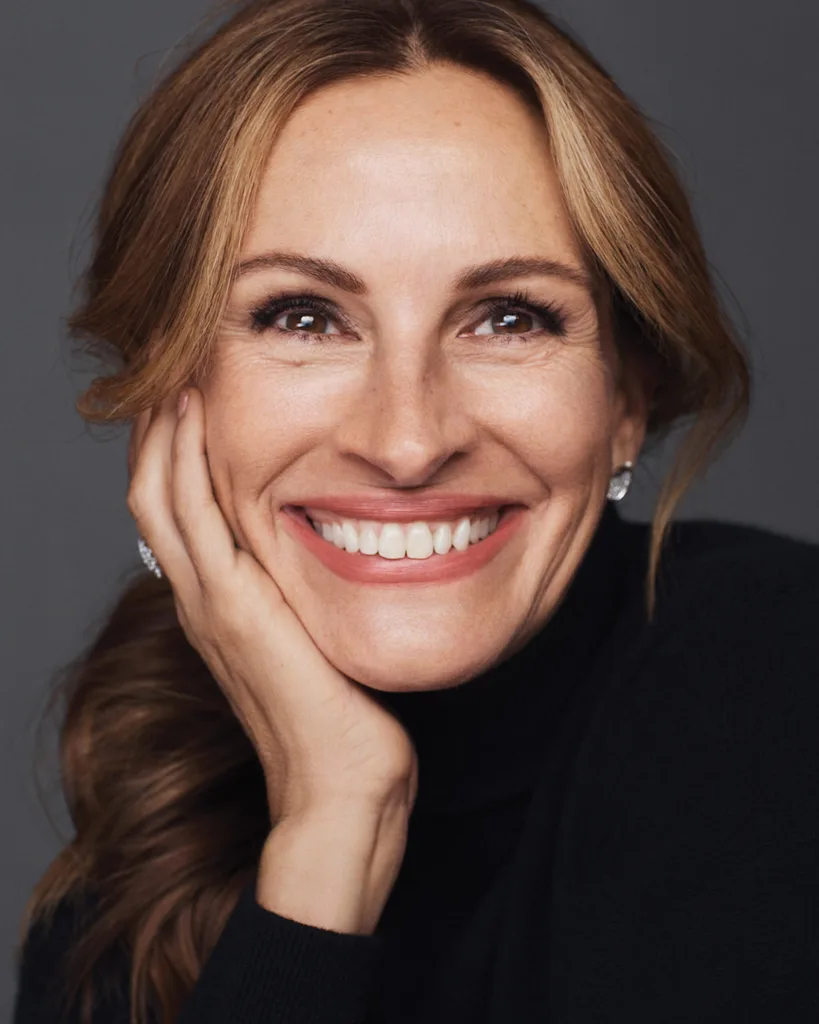
marie claire: You reunited with George Clooney in Ticket to Paradise, which you filmed here in Australia. Tell us about the film and why you decided to do it.
Julia Roberts: I thought Ol Parker’s script was laugh-out-loud funny, but I also thought, God, it would have to be with George. And meanwhile, on the other side of the globe, George was reading it and thought it was very funny and thought, well, it would have to be with Julia. And so he called me and he was like, “Have you read this?” And I said, “I did read it.”
It just magically came together in ways that things so rarely do. And we have had such a fun time making it. It came on the heels of me doing this job [TV mini-series Gaslit] with Sean Penn. Sean and I have been friends for many years but never worked together.
That was a very different type of story and a very different type of relationship. Sean and I had a terrific time but it was super intense. And then I got to go and have this very fun experience with George.
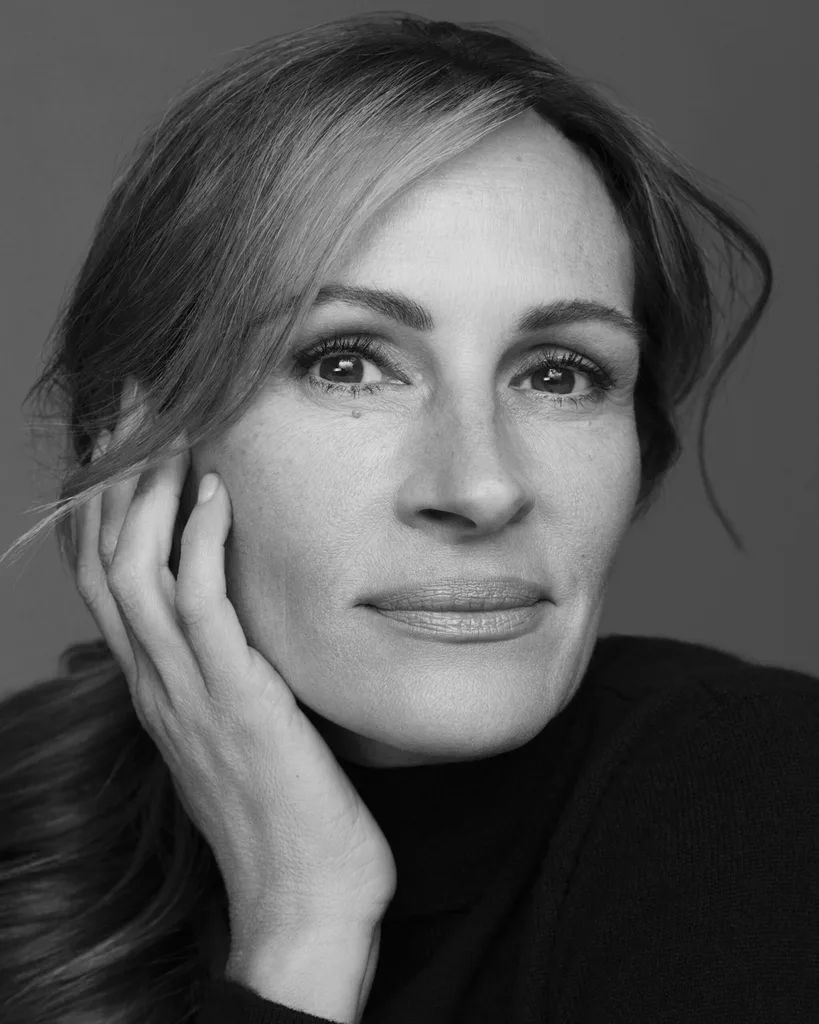
MC: The world has been through an immense period of tumult. Has your idea of happiness changed post-pandemic? What makes you happy now?
JR: I think emerging from the pandemic is a nice feeling for everyone. For me and my family, before the pandemic became the pandemic, when it was just this weird thing where we were all staying home and didn’t really know what was going on, I would sort of joke and say, “We’ve been training for lockdown our entire lives as a family.”
We were lucky it didn’t come as a big shock to our systemic understanding of each other to be locked in a house together, because I know that part was really hard on some families.
MC: Speaking of family, what’s motherhood been like for you lately?
JR: As far as motherhood [goes], I think Covid was hard on young women in particular. Not to take away from the hardships of the young men, but I can see in my daughter and in her and our friend groups that it has been very hard.
And so it’s nice to see her emerge and return to herself. I think she’s got a good head on her shoulders. I think my responsibility as her mother is having an awareness of what I am mirroring for her. There’s things I would say to my girlfriends about how I feel about myself that I’d never say in front of her.

MC: So what does beauty mean to you now?
JR: I went to the dermatologist recently for a skin check and he looked at the side of my face and says, “Oh.” Just past my mouth, in the hollows of my cheeks.
He says, “Do you want me to fill this in?”
I say, “What do you mean? Fill what in?”
And he says, “Well, this line right here, here and here.”
And I was like, “What is it?”
And I look in the mirror and he says, “Smile.” And I smiled. They were smile lines.
I say, “Fill them in? You know how many good stories are in there? How many good laughs? How many great dinner parties? Fill them in? What are you talking about?”
It’s funny because on the one hand I feel like, “That’s 20 years of a happy marriage right there. We don’t fill that in.”
At the same time, the lines do catch my attention. I must tell myself, no, that’s happy stuff. You don’t want to erase that. That’s like saying none of that made me happy and it did. But while I feel this way now, will I feel this way in 10 years? I don’t know.
I do know that I just spent three months in Australia with my friend George. He has known me for such a long time and he is so sweet when he says to me, “The fact that you just have the same face is such a comfort.”
I guess there is almost a nostalgia to see a longtime friend who still looks like your friend.
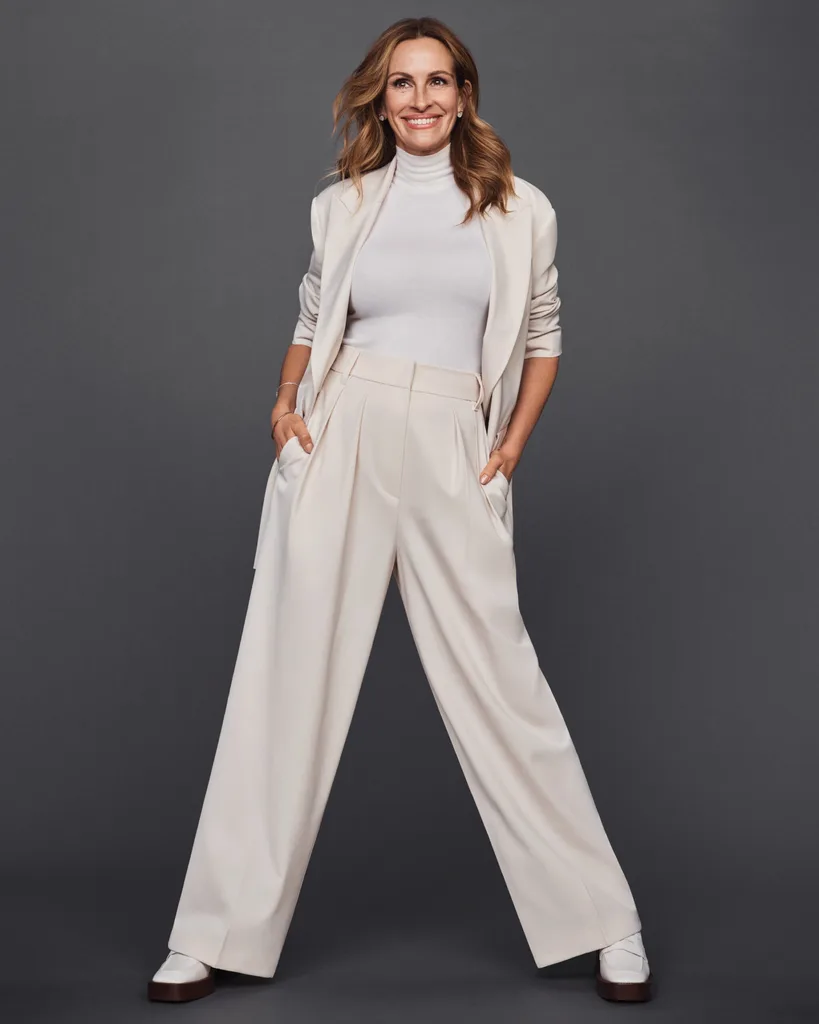
MC: You’ve been a Lancôme ambassador now for 12 years. How has your relationship with the brand changed and what does it mean to you today?
JR: I often think back to what made me drawn to Lancôme as a young person, before I was drawn to cosmetics and skincare in as robust a way as I am now – and as the world is now. Makeup and skincare just weren’t that big of a thing once upon a time.
Back then at Lancôme it was all about [model/actor] Isabella Rossellini. Here was this mature, gorgeous, different, interesting, enigmatic-looking woman. Even the fact that she had such short hair was striking. I thought she was the epitome of elegance – and still do.
As my relationship with the brand has grown, I can remember thinking back to that feeling of knowing they really were who they said they were: authentic, diverse, woman-forward. And they still are today.
To read the full story, pick up a copy of the November issue of marie claire Australia on newsstands from Thursday 13th October.
